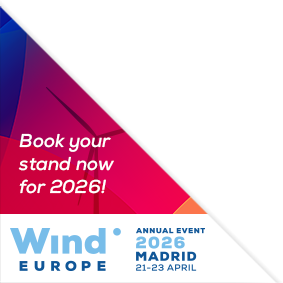Posters
Siblings:
ProceedingsProgrammeSpeakersPostersContent PartnersPowering the Future stageMarkets TheatreStudent programmeResearch & Innovation in actionProgramme Committee & abstracts reviewersPresenters’ dashboardCome meet the poster presenters to ask them questions and discuss their work
We would like to invite you to come and see the posters at our upcoming conference. The posters will showcase a diverse range of research topics, and will give delegates an opportunity to engage with the authors and learn more about their work. Whether you are a seasoned researcher or simply curious about the latest developments in your field, we believe that the posters will offer something of interest to everyone. So please join us at the conference and take advantage of this opportunity to learn and engage with your peers in industry and the academic community.
On 9 April at 17:15, we’ll also hold the main poster session and distinguish the 7 best posters of this year’s edition with our traditional Poster Awards Ceremony. Join us at the poster area to cheer and meet the laureates, and enjoy some drinks with all poster presenters!
We look forward to seeing you there!

PO044: Examining the Potential for Floating Offshore Wind Farms in Irish Waters to Achieve the 37 GW Offshore Wind Energy Goal by 2050
Krzysztof Szczepaniec, PhD research at DkIT, Dundalk Institute of Technology
Abstract
Since adopting the Paris Agreement in 2015, there has been a significant shift in global political dynamics and priorities. In addition to efforts to combat climate change, energy diversification and access to cost-effective energy sources have emerged as crucial drivers of the transition to renewable energy. Ireland has one of Europe's most exceptional offshore wind resources but has not fully capitalised on this advantage. Currently, the country only has one operational offshore wind farm. The latest Irish policy on offshore renewable energy (ORE) aims to deliver 20 GW by 2040 and a minimum of 37 GW by 2050. The Irish Offshore Renewable Energy Technology Roadmap states that floating offshore wind (FOW) will be the primary source of installed power. This study aims to determine if these ambitious plans can be achieved, considering a wide range of development aspects, including technical, legal, social, and environmental constraints outlined in the selected criteria. A reliable methodology has been proposed to identify suitable areas for deploying FOWFs. This approach identifies specific regions where the deployment of a FOWF is technically feasible and has the lowest development risk. It considers various factors such as technical requirements, marine spatial planning, national and international laws and policies, and industry best practices. Based on the layout scenario, the study has demonstrated that the area suitable for FWOFs can accommodate 9 to 11 times more than the targeted capacity of 37 GW. Moreover, Ireland has adequate space to host large FOWFs and excellent wind conditions, with wind speeds between 9.7 to 11 m/s. Ireland might achieve energy self-sufficiency and become a net energy exporter.



